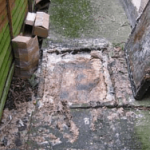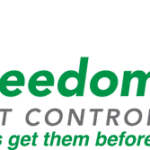
If you’re a homeowner or renter, you’ve probably experienced the frustration of dealing with blocked drains. Whether it’s a clogged sink or a backed-up toilet, these plumbing issues can quickly put a damper on your day. But fear not, because in this blog post, we’ll provide you with more information on how to prevent and fix blocked drains, so you can keep your plumbing system running smoothly.
Understanding the Causes of Blocked Drains
The first step in preventing blocked drains is understanding what causes them. Clogged or blocked drains occur when there is a build-up of debris or foreign objects in your pipes, preventing water from flowing freely. Some common culprits include hair, soap scum, food waste, grease, and even tree roots. Over time, these materials can accumulate and create a blockage in your pipes, leading to slow drainage or complete blockages.

Maintaining Your Drains to Prevent Blockages
To avoid the headache of dealing with blocked drains, it’s essential to maintain your drains regularly. One simple way to do this is by using drain covers or strainers in your sinks and tubs to catch any debris that could potentially cause a blockage. Additionally, make sure to dispose of grease, oil, and food scraps properly, as they can solidify and create clumps in your pipes. If you have trees near your home, consider scheduling regular maintenance to trim back any roots that may be growing into your pipes.
Tackling Minor Blockages on Your Own
In some cases, you may be able to clear minor blockages on your own using natural methods. For example, pouring boiling water down your drain can help break down any grease or soap scum build-up. You can also try using a plunger to dislodge the blockage. For stubborn clogs, a mixture of baking soda and vinegar followed by hot water can help dissolve the debris. Just be sure to avoid using chemical drain cleaners, as they can be harsh on your pipes and harmful to the environment.
When to Call in the Professionals
If you’ve tried the above methods and still can’t seem to clear the blockage, it may be time to call a professional plumber. They have the expertise and equipment needed to identify and fix more severe blockages. Plus, they can provide you with more information on how to prevent future clogs and keep your drains functioning properly.
Preventative Measures for a Blockage-Free Plumbing System
Aside from maintaining your drains, there are some other preventative measures you can take to ensure your plumbing system remains free of blockages. First, avoid pouring any chemicals, oils, or grease down your drains, as they can solidify and create stubborn blockages. You can also schedule regular inspections and maintenance with a plumber to catch any potential issues before they become major problems.
The Benefits of a Well-Maintained Plumbing System
Keeping your drainage system in good condition goes beyond preventing blocked drains. A well-maintained plumbing system can also help you save money in the long run by avoiding costly repairs. It can also improve the overall functionality and efficiency of your plumbing, ensuring that you have reliable access to clean water and proper sanitation.
So, don’t wait until you’re dealing with a major plumbing emergency to start taking care of your drains. By following these tips and tricks, you can say goodbye to blocked drains and hello to a smooth-running plumbing system. Remember, maintenance is key when it comes to keeping your drains and pipes happy and healthy.



